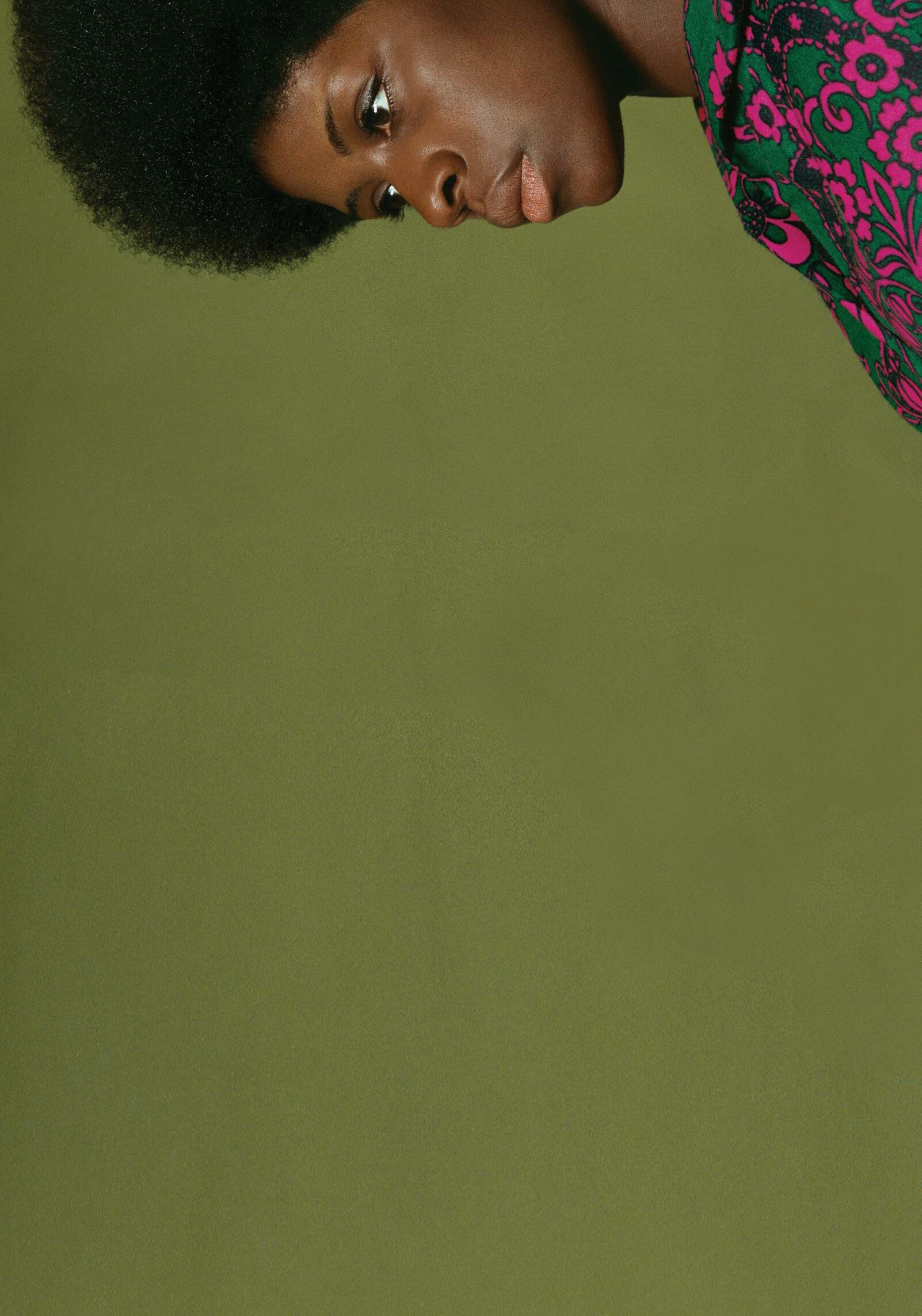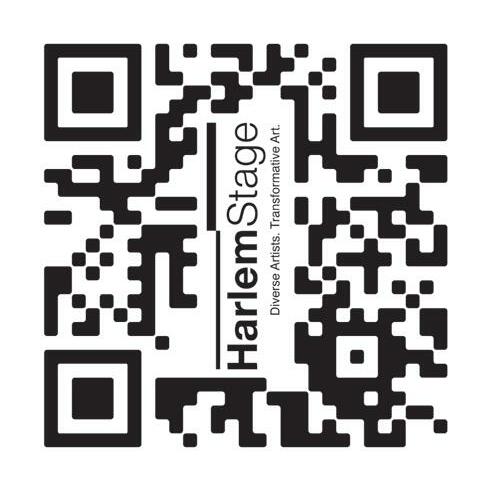Diverse Artists. Transformative Art




















Over the course of the 2022/2023 Season, Harlem Stage examines the Black Arts Movement of the 1960s to the 1970s, and its relationship to race, gender, sexuality, music, photography, film, poetry, theater, and dance, as well as its intersectionality with the larger Black Power Movement. Harlem Stage also intends to raise key questions that remain relevant to artistic production: what is the relationship between art and politics and what is the role of the politically conscious artist?
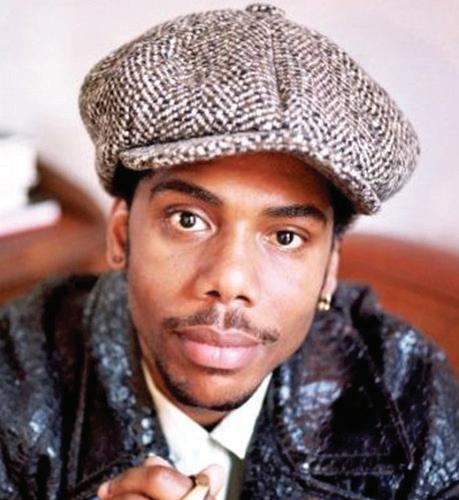
Harlem Stage will convene seven programs, culminating in a spring conference and concert, paying tribute to the groundbreaking writers, poets, visual artists, musicians, and intellectuals who attempted to situate their work within the political, economic, social, historical, and artistic context of Black Americans. Employing roundtables, public dialogues, and screenings, Harlem Stage also intends to explore controversial areas of tension between the intellectual, ethical, and commercial imperatives of the Black Arts Movement, its scholarship, and the professional demands many of its leaders (given the constraints, and disparate doctrinal paths of debate, within its institutional academy) imposed upon artists, and whether or not the Black Arts Movement’s libertarian, racism-countering goals were ever truly achieved.
Employing “conversations” between highly esteemed sovereigns of the Black Arts Movement and a contemporary generation of artists, Black Arts Movement: Examined centers itself within a dialogue that is both historically and culturally relevant in the ever-changing present world.
Carl Hancock Rux Associate Artistic Director/Curator-in-ResidenceWhen Carl Hancock Rux and I first started discussing his joining the staff of Harlem Stage as our Associate Artistic Director and Curator-in-Residence, our conversations centered on how a practicing artist with an active career would be able to adjust to the various responsibilities associated with the running of an arts organization. More significantly we talked about curatorial processes involving the design and implementation of our programs within the context of a team. Even before we sealed the deal for his engagement, made possible through the generosity of the Mellon Foundation, Carl, who had presented his art at Harlem Stage for over 30 years, was brimming with ideas. Certainly something that I should have expected, but when one of his many ideas was to propose a yearlong series of programs examining the Black Arts Movement, I was deeply moved and inspired.
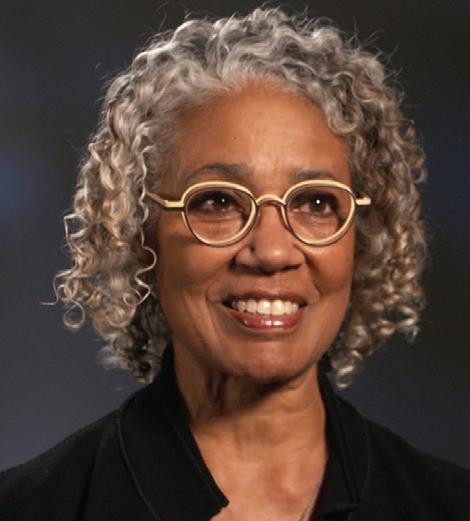
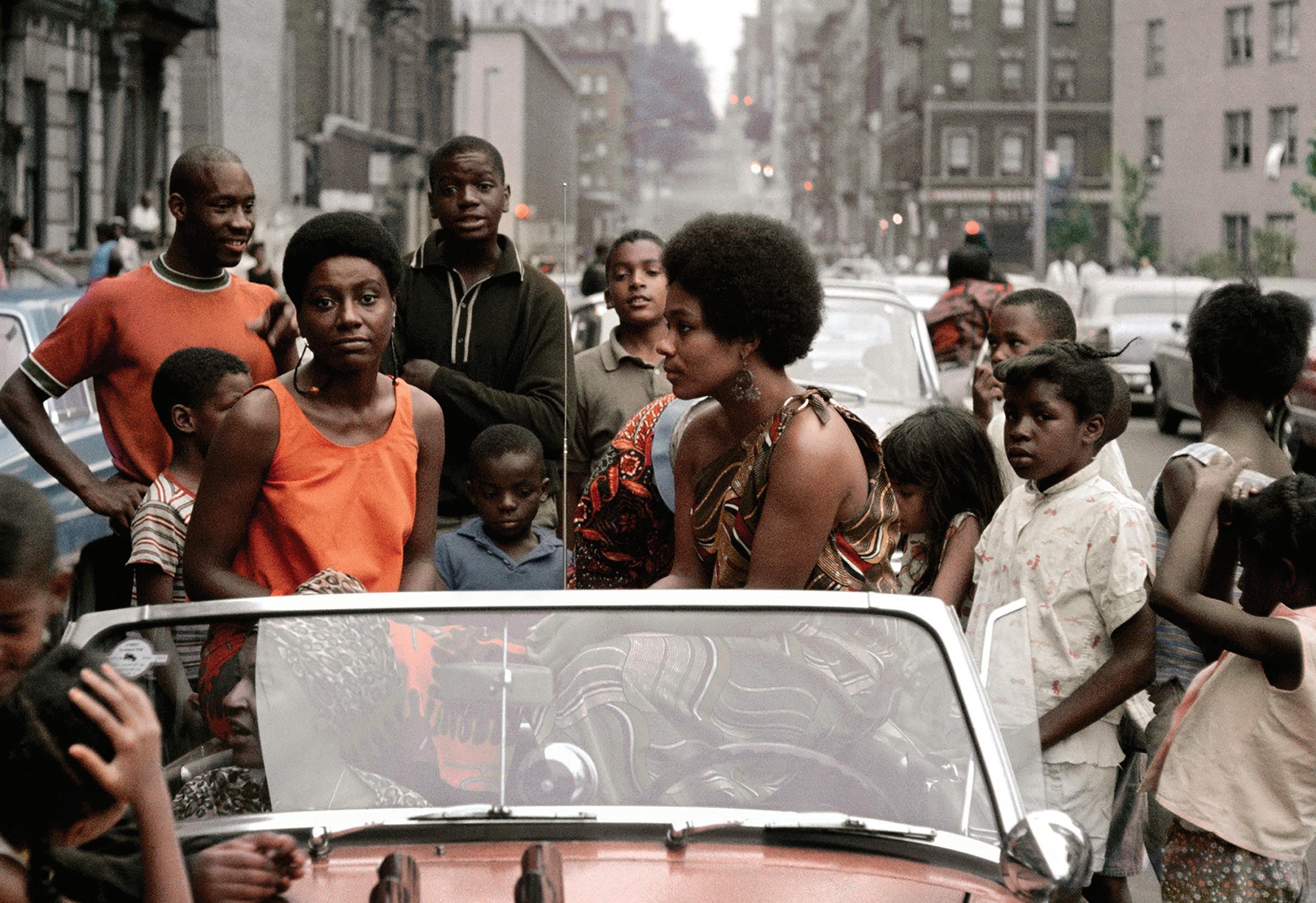
Essentially, I cut my teeth in performance and administration as a participant in the Black Arts Movement almost accidentally as the young partner of the artist, Emilio Cruz, who reluctantly left a career in the NY art world to join the Black Arts Group (BAG) in St. Louis. It was life-changing in many unexpected ways. We were suddenly in the center of an amazing group of artists and activists who mixed their dedication to creative work with the idea of building and transforming community, confronting the social and political strictures that reinforced racist oppression. In part as a response to the Civil Rights movement of the ’60s, we marched, we protested, and we created art meant to respond to and challenge the status quo. Carl and I spent many hours discussing the parallels between those times 50 years ago to the police killings of Black men, women, and children and the continued oppression that inspires the Black Lives Matter movement of today. The ultimate parallel is the creative response of contemporary artists, looking back and creating forward.
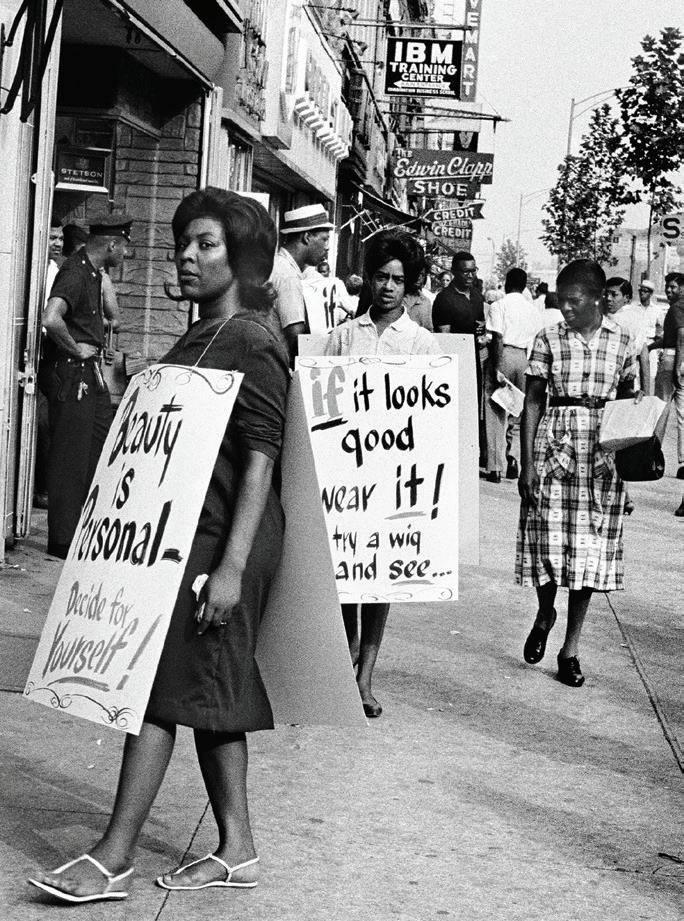
Cycles abound sometimes more quickly than we can record or absorb. The point of the series that Carl has conceived, and programmed collaboratively with myself, Managing Director Eric Oberstein, and Programming Manager Yunie Mojica, is not only to absorb, but it is also to examine, to expand our understanding, to learn from the past through the lens of transformative art. As an organization that sits proudly at the intersection of art and social justice, this examination of an arts movement born out of resistance exemplifies the mission of Harlem Stage. I hope that you will join us and participate with us in this examination.
Director & CEO Artistic
4 Photos (bottom left and top) by Kwame Brathwaite. Photo of Pat Cruz courtesy of The HistoryMakers.
Artistic
4 Photos (bottom left and top) by Kwame Brathwaite. Photo of Pat Cruz courtesy of The HistoryMakers.
Harlem Stage is the performing arts center that bridges Harlem’s cultural legacy to contemporary artists of color and dares to provide the artistic freedom that gives birth to new ideas.
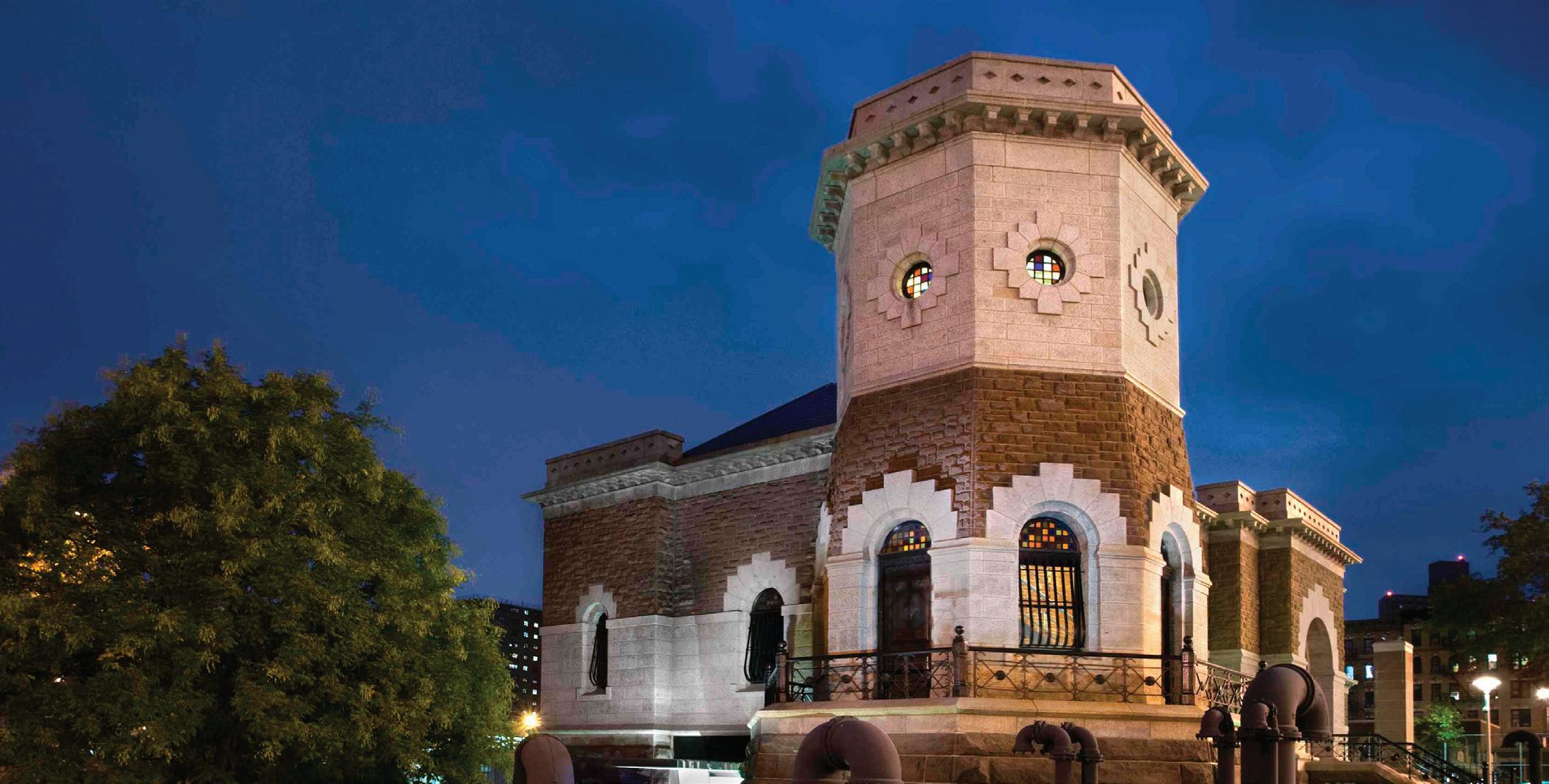
For nearly 40 years Harlem Stage has stood proudly at the intersection of art and social justice with a singular mission to perpetuate and celebrate the unique and diverse artistic legacy of Harlem and the indelible impression it has made on American culture. We provide opportunity, commissioning, and support for artists of color, make performances easily accessible to all audiences, and introduce children to the rich diversity, excitement, and inspiration of the performing arts.
We fulfill our mission through commissioning, incubating, and presenting innovative and vital work that responds to the historical and contemporary conditions that shape our lives and the communities we serve.
With a long-standing tradition of supporting artists and organizations around the corner and across the globe, Harlem Stage boasts such legendary artists as Harry Belafonte, Max Roach, Sekou Sundiata, Abbey Lincoln,
Sonia Sanchez, Eddie Palmieri, Maya Angelou, and Tito Puente, as well as contemporary artists like Maimouna Youssef aka Mumu Fresh, Jason “Timbuktu” Diakité, Christian Scott aTunde Adjuah, Tamar-kali, Vijay Iyer, Mike Ladd, Meshell Ndegeocello, Jason Moran, José James, Craig Harris, Nona Hendryx, Bill T. Jones, and more. Our education programs serve over 2,300 New York City school children each year.
The New York Times has hailed Harlem Stage as “an invaluable incubator of talent” and we have been recognized as an organization still unafraid to take risks. Our investment in this visionary talent is often rewarded in the early stages of many artists’ careers and we proudly celebrate their increasing success. Five members of our artist family have joined the ranks of MacArthur “Genius” Fellowship awardees: Kyle Abraham (2013), Vijay Iyer (2013), Jason Moran (2010), Bill T. Jones (1994), and Cecil Taylor (1991).
Harlem Stage is a winner of the Association of Performing Arts Presenters’ William Dawson Award for Programming Excellence and Sustained Achievement in Programming.
FRI – SAT, OCTOBER 14 – 15
7:30PM | $25 / 15
PART I: INTRODUCTION
Pat Cruz & Carl Hancock Rux
In Conversation featuring a performance of a work-in-progress by The FHP Collective
FRI, NOVEMBER 11
7:30PM | $25 / $15
PART II: FILM
Dutchman Film & Conversation
Presented in collaboration with Maysles Documentary Center
FRI – SAT, JANUARY 27 – 28
7:30PM | $35 / $25
PART III: POETRY

Music & Poetry: Thulani Davis + Wadada Leo Smith
FRI – SAT, FEBRUARY 24 – 25
7:30PM | $35 / $25
PART IV: MUSIC
Max Roach’s We Insist! Freedom Now Suite Reimagined feat. Michela Marino Lerman
FRI – SAT, MARCH 24
7:30PM | $25 / $15
PART V: THEATER
Excerpts, Readings, and Conversation
Funnyhouse of a Negro by Adrienne Kennedy
THU – SAT, APRIL 13 – 15
7:30PM | $35 / $25
PART VI: DANCE
E-MOVES
Our signature dance series presenting works inspired by the Black Arts Movement.
THU – SAT, MAY 18 – 20 | 7:30PM
PART VII: BLACK ARTS
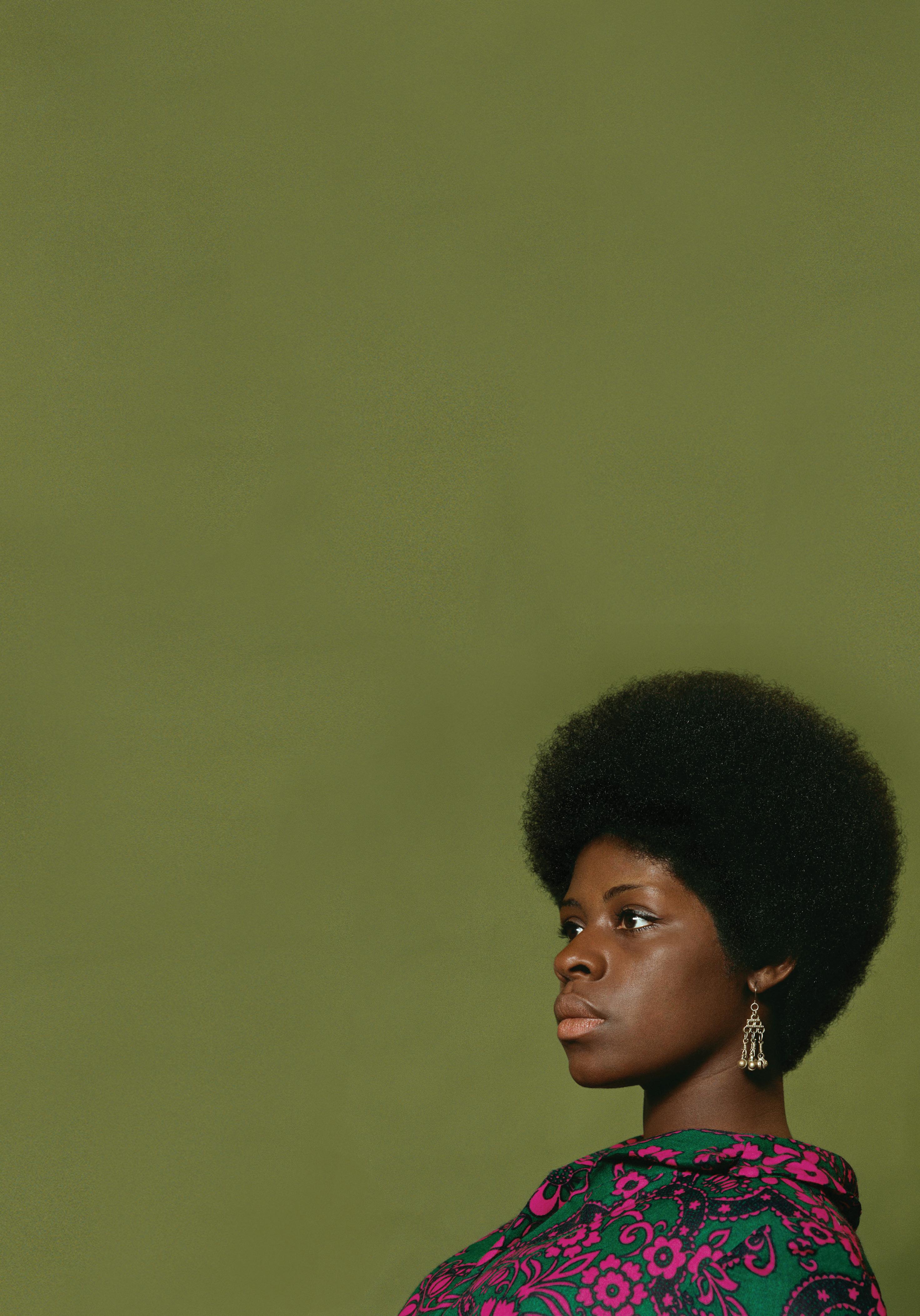
MOVEMENT: THEN AND NOW CONFERENCE
The Black Arts Movement Conference is a three-day event featuring panels, discussions, essays, and performances that reflect, examine, and point to the full experience and culture of the Black Arts Movement, culminating in a concert curated by Vernon Reid.
PICK-3 OR MORE PACKAGE
Enjoy 25% OFF of your purchase when you buy tickets to 3 or more live events!
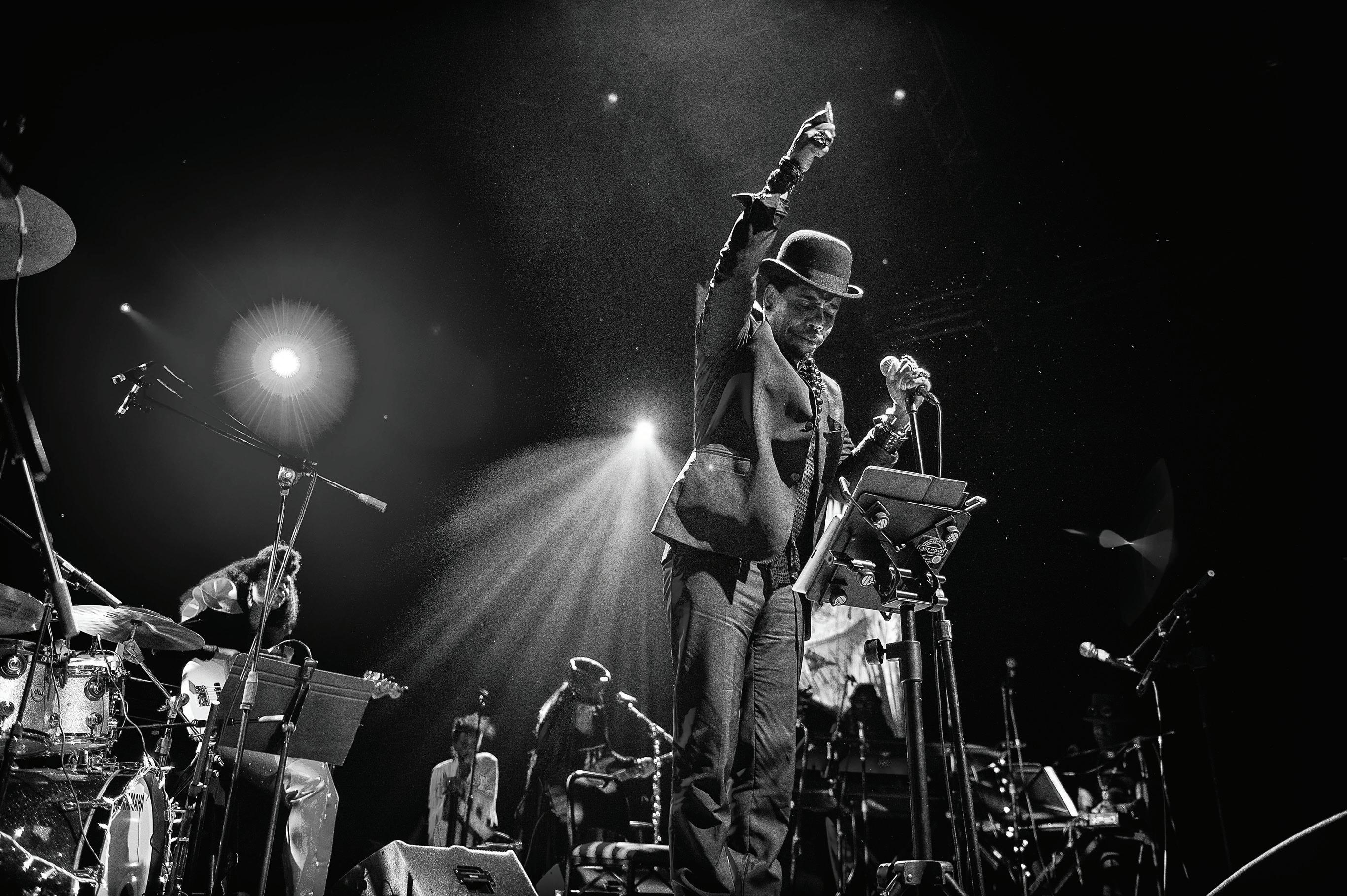
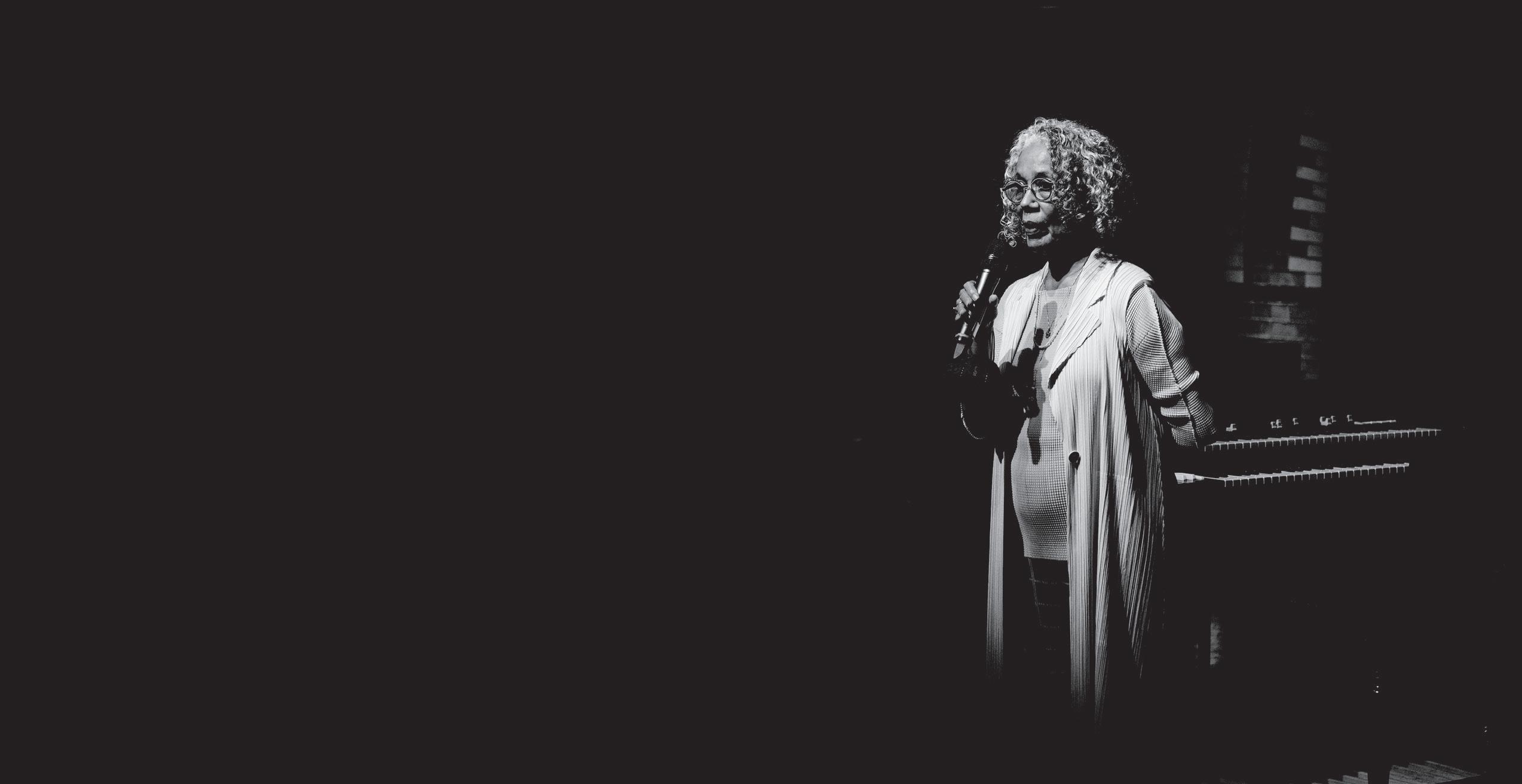
HARLEM STAGE GATEHOUSE LIVE
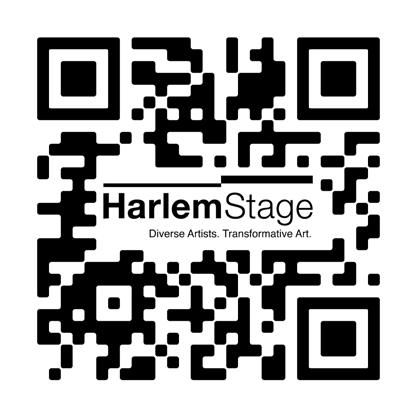
The Black Arts Movement was a cultural movement in the 1960s to 1970s that was rooted in music, literature, drama, and visual arts, led by Black artists, activists, and intellectuals. This was the cultural intersection that moved and shaped the ideologies of Black identity, political beliefs, and African American culture.
In this introduction of the Harlem Stage series Black Arts Movement: Examined, Harlem Stage Artistic Director & CEO, Pat Cruz, and Associate Artistic Director/Curatorin-Residence, Carl Hancock Rux, discuss, examine, and dive into the importance of the movement and the inspiration and meaning behind this curated series. Exploring its profound and innovative successes, this dialogue also turns a critical eye toward the movement’s exclusionary principles, which managed to alienate a Black and White mainstream culture.
In this conversation, led by Cruz, a representative of artists who worked and lived through the era of the Black Arts Movement; and Rux, representing one of many present-day artists and activists who worked
closely with the Black Lives Matter Movement; audience members are invited into a forum of discussion, inviting commentary and questions, attempting to reawaken a critical discourse regarding black aesthetics, while challenging, clarifying, contextualizing, and questioning the evolution and legacy of a controversial arts movement and its impact on Black arts institutions today.
Following a brief intermission, The FHP Collective, dance company of internationally acclaimed dancer/ choreographer Francesca Harper, will perform a work-in-progress showing of a new work that responds to themes of racial justice and accountability.
The new work performed by The FHP Collective is supported by Works & Process’ LaunchPAD initiative, described as “Process as a Destination.”
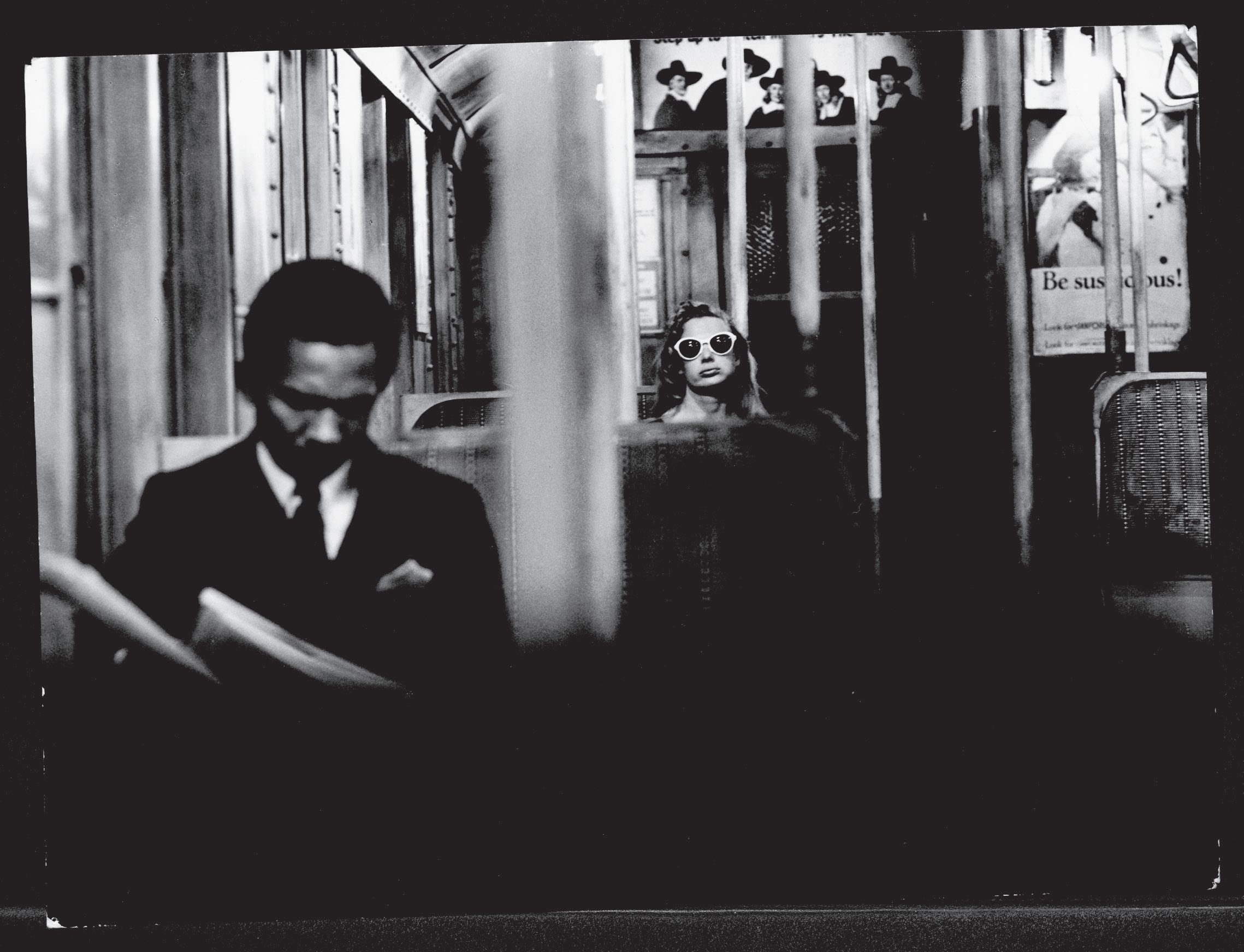
Presented in collaboration with Maysles Documentary Center, Harlem Stage presents the film, Dutchman, by Amiri Baraka, which is based on his 1964 OBIE Awardwinning one act play of the same name that originally premiered at The Cherry Lane Theater. Following the screening, Harlem Stage Artistic Director & CEO Pat Cruz will speak with writer, poet, and Black Arts Movement artist David Henderson about the film.
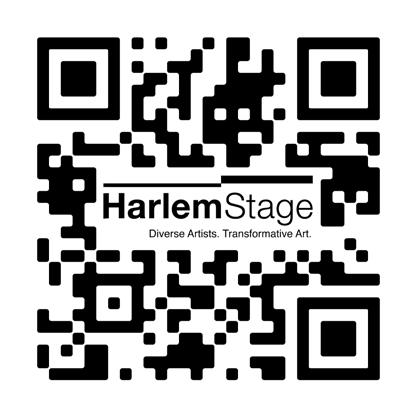
Having a profound effect on theatergoers and critics, Baraka’s play, Dutchman, was adapted as a British film in 1967, produced by Gene Persson; directed by first-time director, Anthony Harvey (Academy Award nominee for his direction of the historical drama, The Lion In Winter); and starring acclaimed actor, Al Freeman, Jr., and two-time Academy Award-nominated actress, Shirley Knight.
Dutchman addresses interracial tension, sociopolitical awareness, and the relevance of African history and culture to blacks in the United States.
Described by The New York Times,
the play is “designed to shock with its language and its murderous rage… an explosion of hatred rather than a play. It puts into the mouth of its principal Negro character a scathing denunciation of all the white man’s good works, pretentions, and condescensions, proclaiming it bespeaks a promising, unsettling talent.” Widely recognized as Baraka’s greatest work in any genre, Dutchman, in both its thematic emphasis and dramatic structure, combines avant-garde rituals of irony, emotional power, and social insight; a commentary on a clash between characters from divergent social and philosophical backgrounds, both commenting on the internal divisions of individuals in American society, and both culminating in acts of violence that are at once realistic and symbolic.
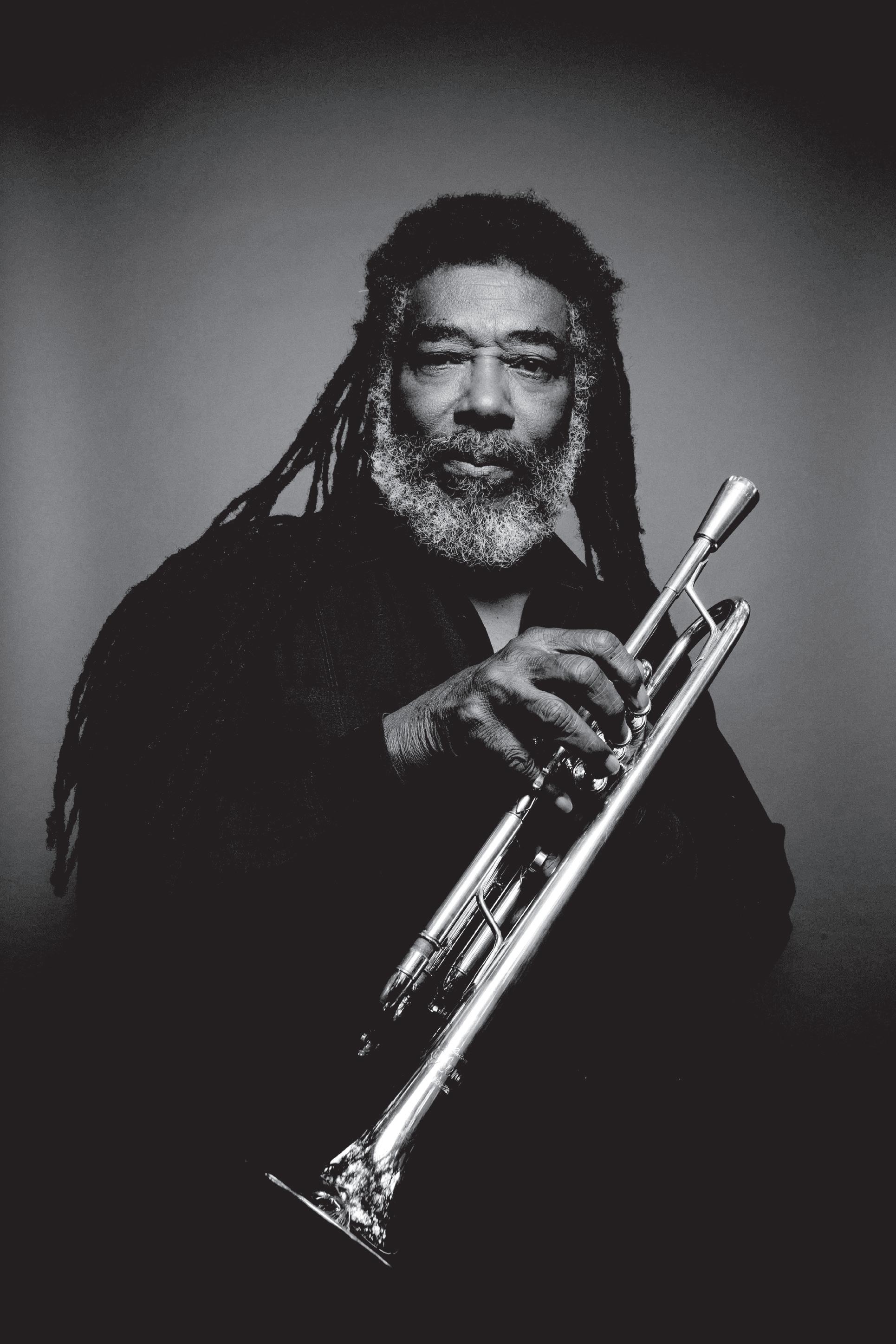
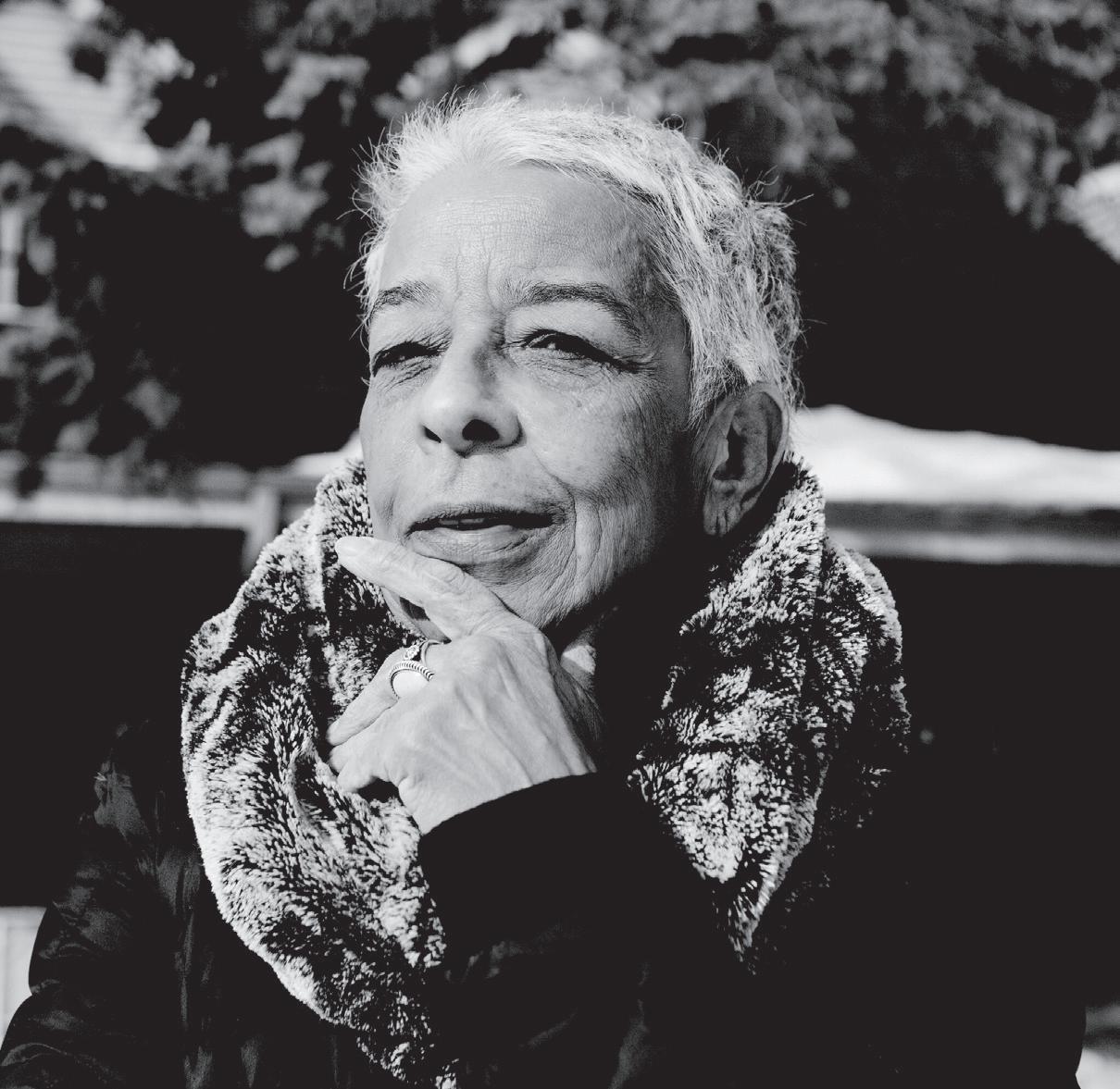
FRI – SAT, JAN 27 – 28 | 7:30PM | $35 / $25
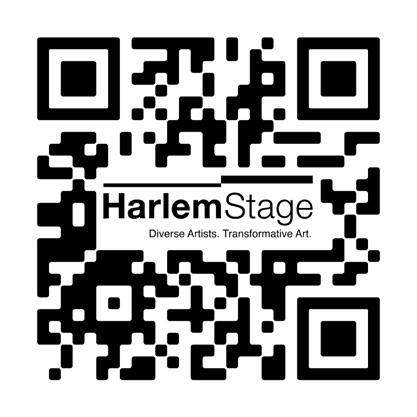
Playwright, journalist, librettist, novelist, poet, and screenwriter
Thulani Davis and trumpeter, multi-instrumentalist, composer, and improviser Wadada Leo Smith, a frequent collaborator and Pulitzer Prize-nominated musician and composer, perform an evening of poetry and music alongside Smith’s Kikuyu Ensemble, engaging with Davis’ works, Nothing But the Music and The Emancipation Circuit
Davis, an interdisciplinary scholar, mentored artists including journalist Greg Tate, and collaborated with artists including Laurie Carlos, Jessica Hagedorn, and Ntozake Shangé. She also wrote for The Village Voice for more than a decade, becoming a Senior Editor for the publication. Davis is one of several women poets connected to the Black Arts Movement, whose work continues to breathe impressionistic life into the Black Arts Movement’s sonic-social history.
For the last five decades, Smith has been a member of the historical and legendary AACM collective, one of the pioneering ensembles of the Black Arts Movement. He distinctly defines his music as “Creative Music,” and his diverse discography reveals a recorded history centered around important issues that have impacted his world. Smith is a recipient of the 2016 Doris Duke Performing Artist Award and the Hammer Museum’s 2016 Mohn Career Achievement Award.
Thulani Davis, Poetry/Words
Wadada Leo Smith, Trumpet
Ashley Walters, Cello
Erica Dohi, Violin
Pheeroan akLaff, Drums
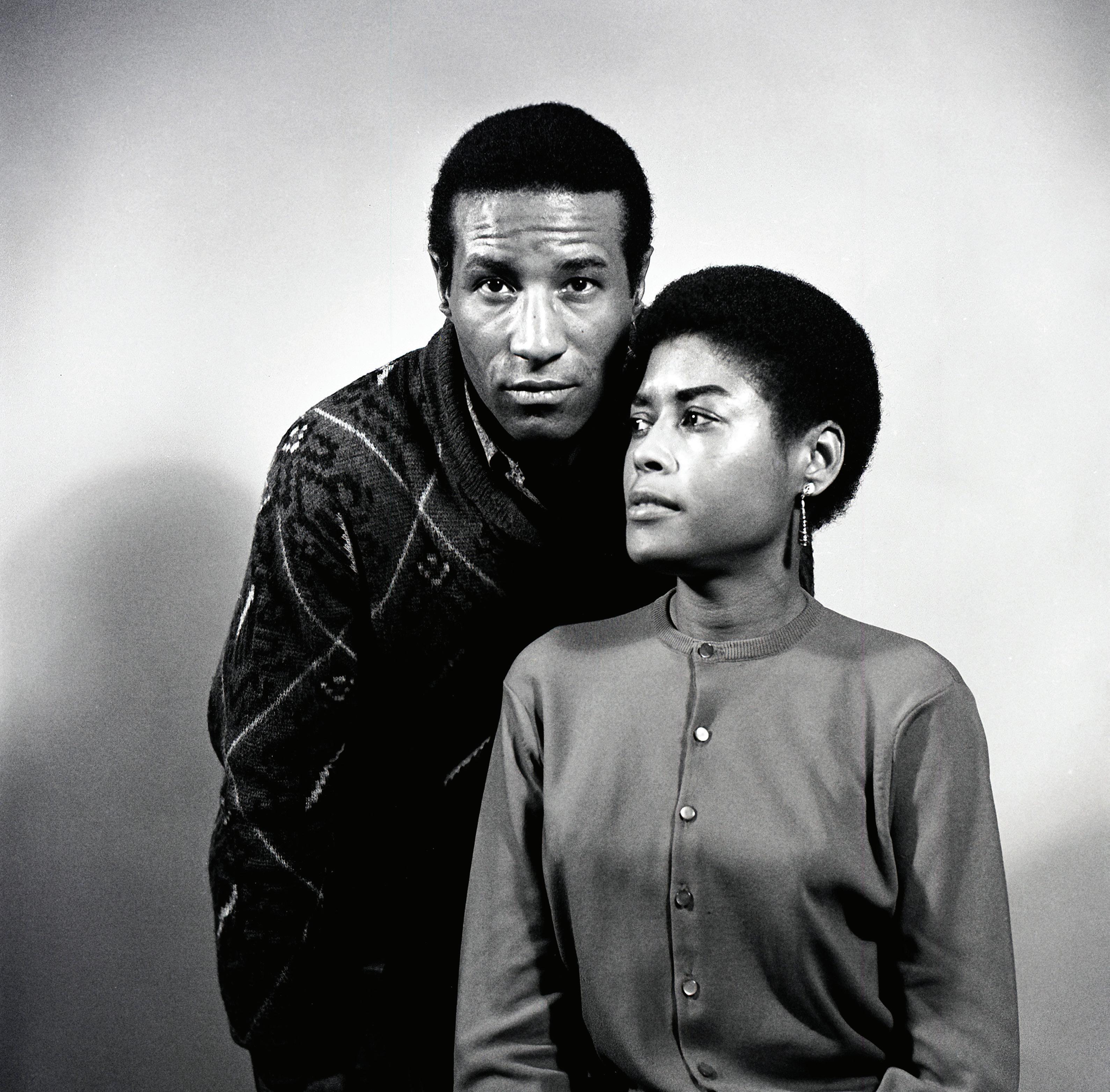
HARLEM STAGE GATEHOUSE LIVE
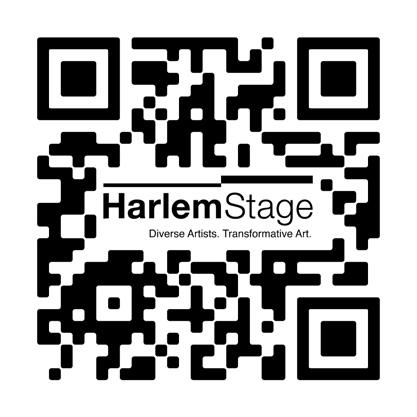
MAX ROACH’S WE INSIST! FREEDOM NOW SUITE REIMAGINED FEAT. MICHELA MARINO LERMAN
As part IV of the Harlem Stage series Black Arts Movement: Examined, Harlem Stage presents tap dancer, Michela Marino Lerman’s Love Movement, who will perform and re-imagine Max Roach’s groundbreaking 1960 album, We Insist! Freedom Now Suite.
In 1959, acclaimed jazz musician, Max Roach, embarked upon a collaboration with singer and poet, Oscar Brown, Jr., on a suite of songs commissioned by the youth movement of the NAACP to commemorate the centennial of the Emancipation Proclamation. What resulted, We Insist! Freedom Now Suite, marked a decisive shift challenging jazz music conventions, as its sentiments conveyed a growing impatience with the lagging pace of the American civil rights movement, and demanded a turn toward global anticolonialism. Released on Candid Records in 1960, featuring Roach, and singer Abbey Lincoln, and a host of noted musicians, the music quickly became a global phenomenon.
Winner of the 2019 Hoofer Award, Michela Marino Lerman is a globally sought after tap dance artist,
performer, choreographer, bandleader, educator, and all-around creative spirit. The Huffington Post has called her a “hurricane of rhythm” and The New York Times has called her both a “prodigy” and has described her dancing as “flashes of brilliance.” Quincy Jones has said she is an “absolute tap dancing star who knows her roots.” She was proudly mentored by some of the masters of tap dance including Gregory Hines, Buster Brown, Leroy Myers, Peg Leg Bates, Marion Coles, and Mable Lee. Love Movement, Marino Lerman’s ensemble, is a hybrid of the highest levels of musicianship and hoofing. At Harlem Stage, Marino Lerman pays tribute to this groundbreaking album, selected in 2022 by the Library of Congress as being “culturally, historically, or aesthetically significant.”
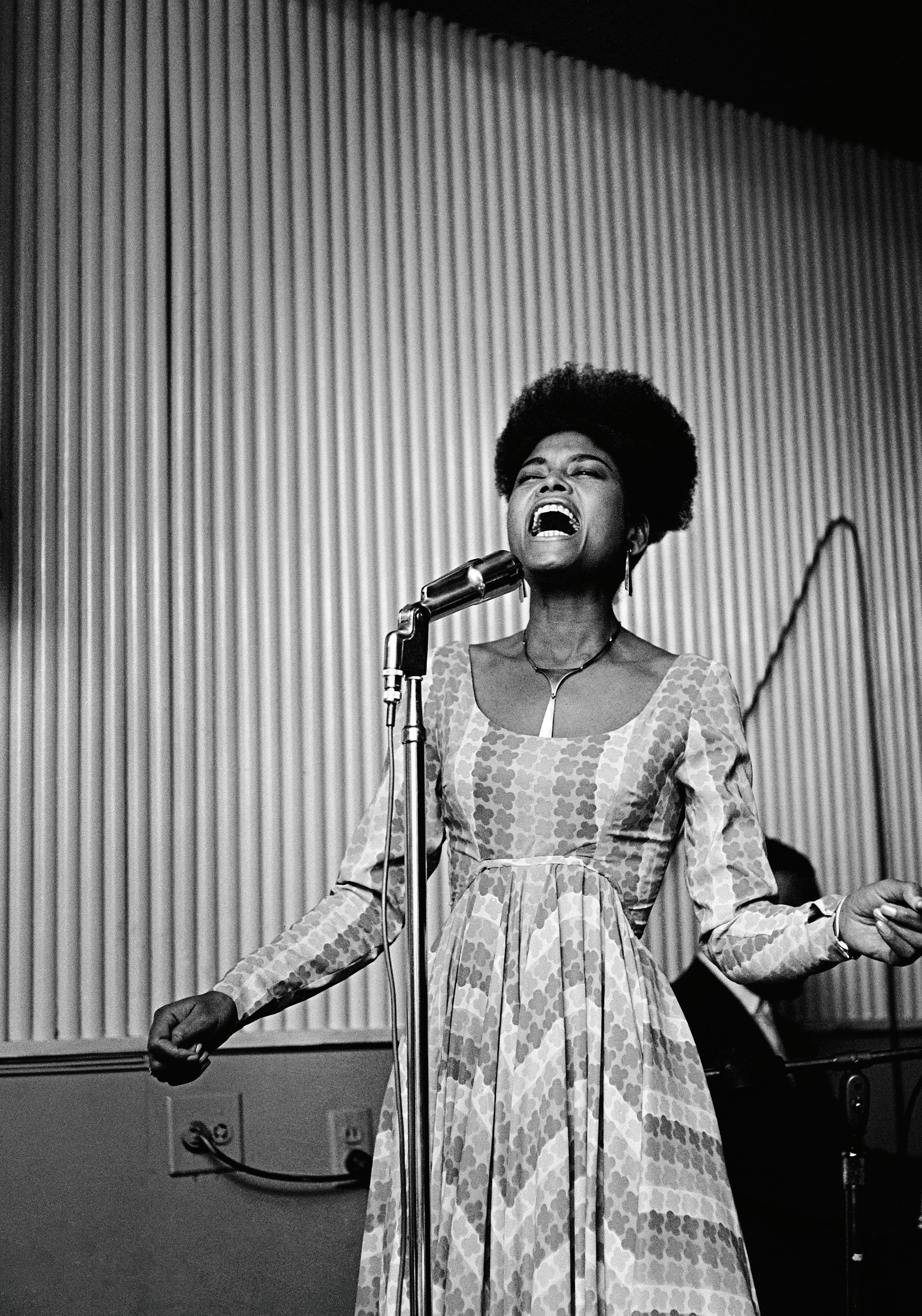
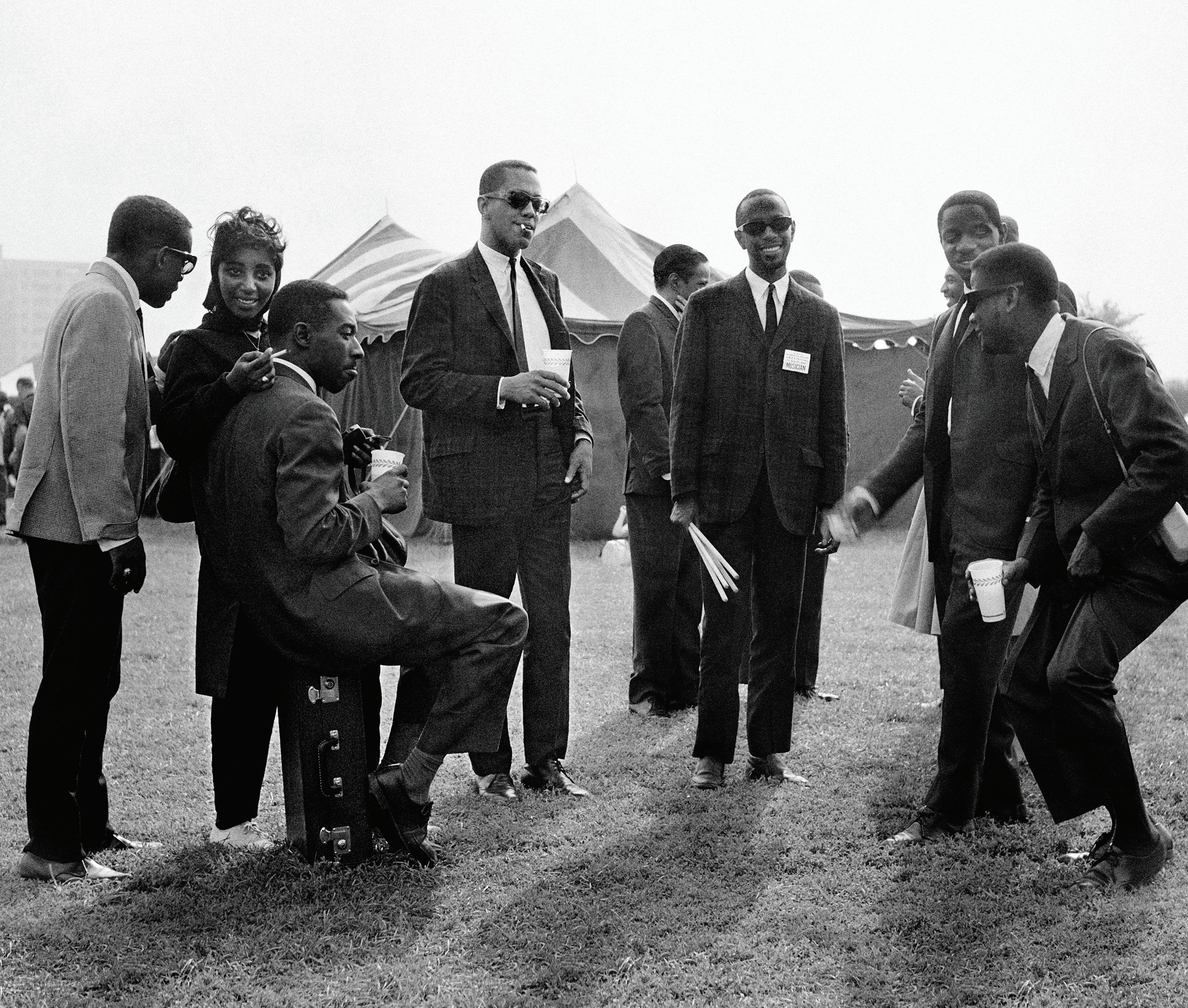
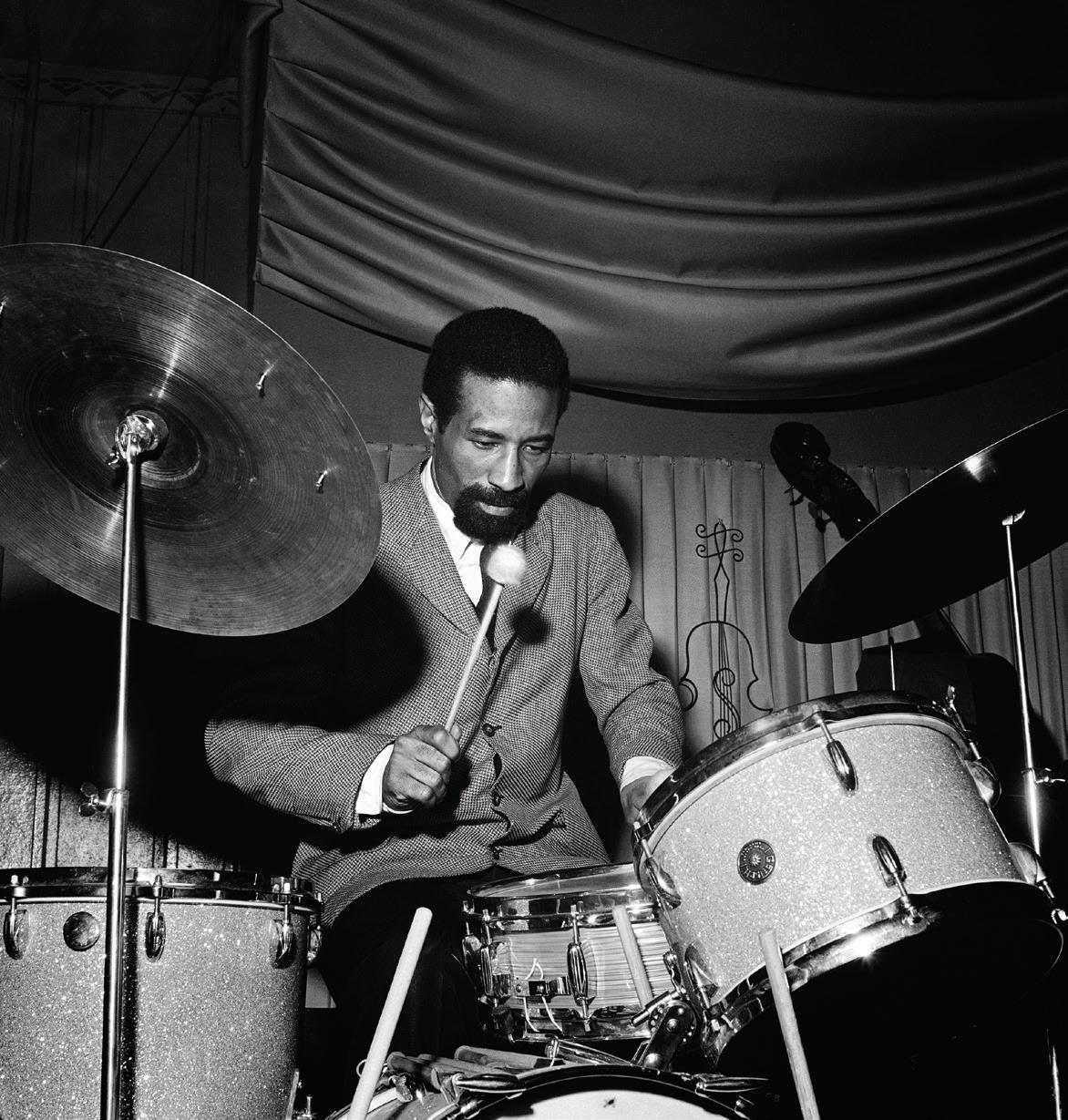
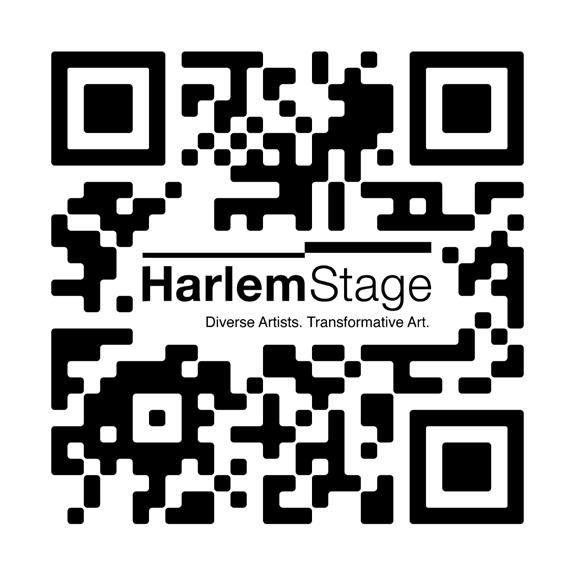
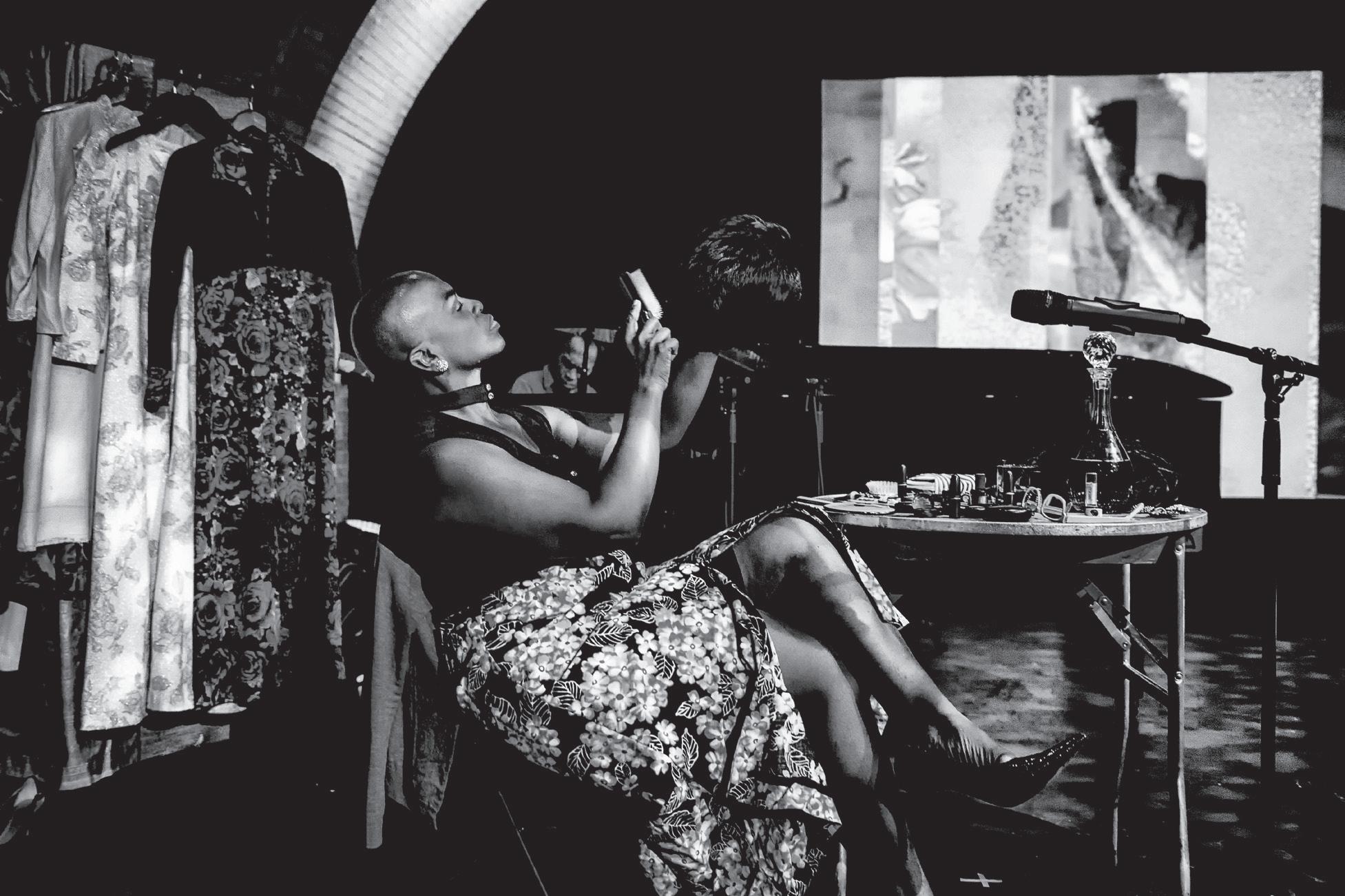 17
Photo Credit: Danny Clinch 17 Photo by Marc Millman
17
Photo Credit: Danny Clinch 17 Photo by Marc Millman
FRI – SAT, MAR 24 | 7:30PM | $25 / $15
FRI, FEB 11–SAT FEB 12 | 7:30PM | $35/25
HARLEM STAGE GATEHOUSE LIVE
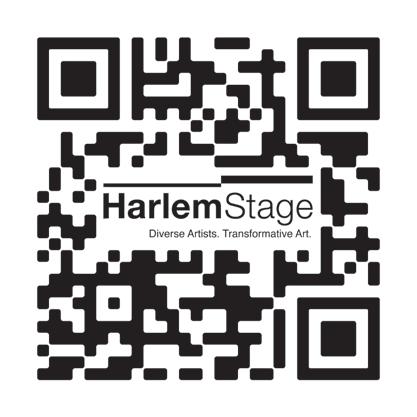
FUNNYHOUSE OF A NEGRO BY
Funnyhouse of a Negro by Adrienne Kennedy was a seminal play written during the Black Arts Movement of the 1960s and 1970s. It represented a radical departure from the naturalistic theater of the time and provided performance opportunities for a long list of actors who became the iconic talents of the decades that followed. Readings and excerpts of this groundbreaking work will be presented at Harlem Stage, preceded by a conversation with Associate Artistic Director/Curatorin-Residence Carl Hancock Rux, providing further context on the impact of the work and its relationship to the Black Arts Movement.
ADRIENNE KENNEDYFunnyhouse of a Negro is a modern classic about the student Sarah, a young Black woman living in New York City, and her search for her identity in a very complex, warring, and fractured world. This search is manifested in her many selves: Queen Victoria, the Duchess of Hapsburg, Patrice Lumumba, and Jesus Christ. Performed by colleges worldwide, this landmark play speaks to students trying to find a place in the world. Funnyhouse of a Negro was first presented Off-Broadway at the East End Theater in New York City on January 14, 1964.
- [ ] Funnyhouse of a Negro is a modern classic about the student Sarah, a young Black woman living in New York City, and her search for her identity in a very complex, warring, and fractured world. This search is manifested in her many selves: Queen Victoria, the Duchess of Hapsburg, Patrice Lumumba, and Jesus Christ. Performed by colleges worldwide, this landmark play speaks to students trying to find a Funnyhouse of a Negro was first presented Off-Broadway at the East End Theater in New York City on January 14, 1964.
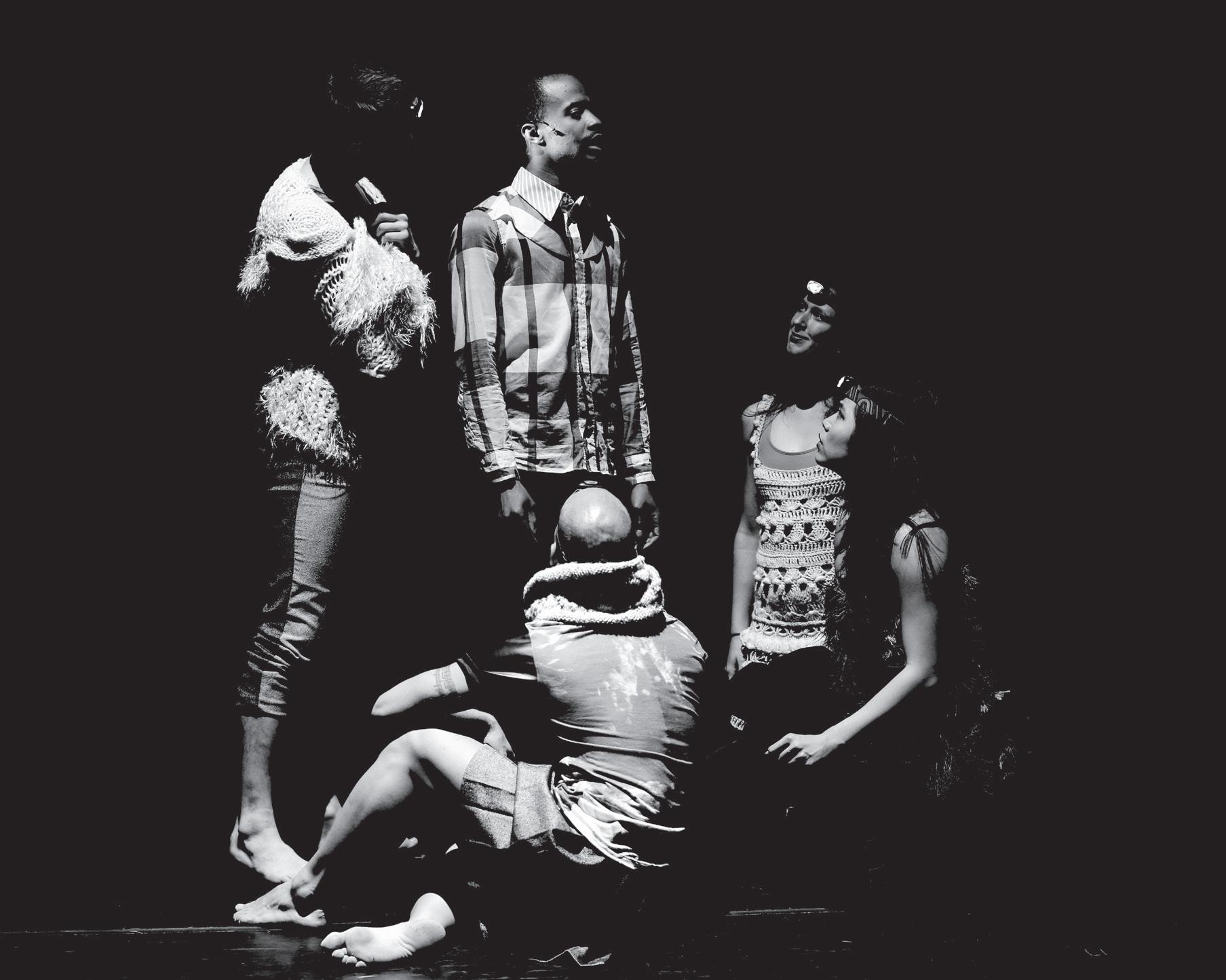
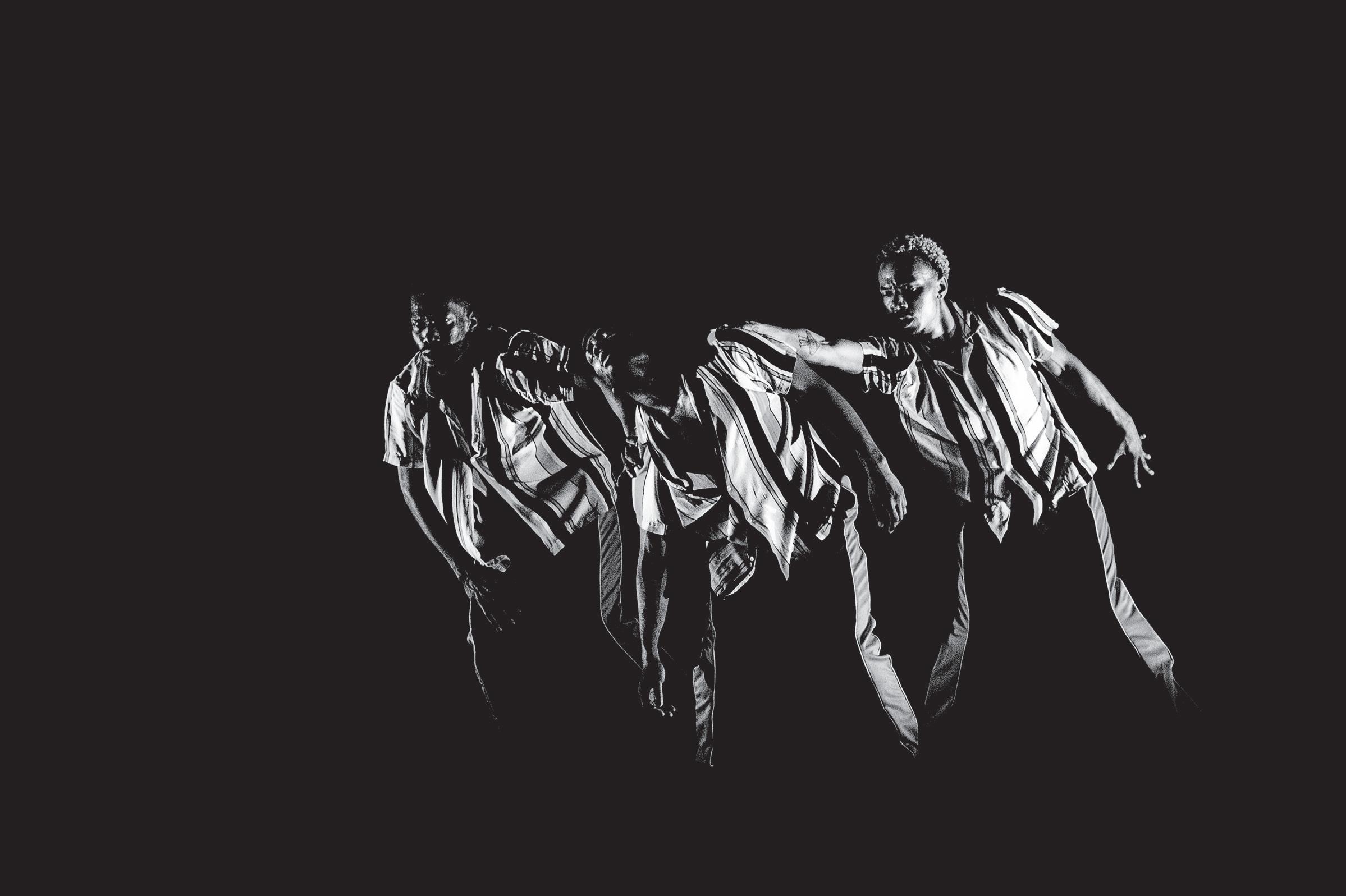 19
Photo by Marc Millman
19
Photo by Marc Millman
THU – SAT, APR 13 – 15 | 7:30PM | $35 / $25
FRI, FEB 11–SAT FEB 12 | 7:30PM | $35/25
HARLEM STAGE GATEHOUSE LIVE
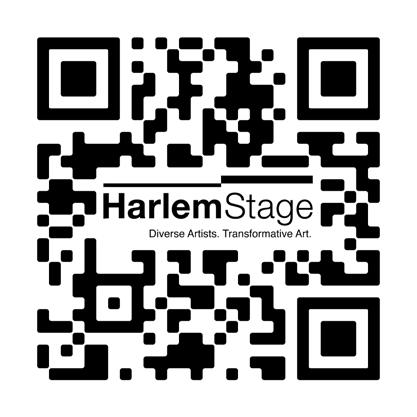
For over 20 years, Harlem Stage’s signature dance series, E-Moves, has brought together phenomenal choreographers, artists, musicians, and dancers of color to showcase their choreographic visions and pull audiences into an exploration of movement and message. The Black Arts Movement: Examined series inspires this year’s program and will feature works in conversation with the Black Arts Movement. Join us for an evening showcasing emerging, evolving, and established choreographers responding to the legacy of the past while creating dances that lean into the future.
Supported, in part, by the Mellon Foundation, the Mertz-Gilmore Foundation, and the Harkness Foundation for Dance.
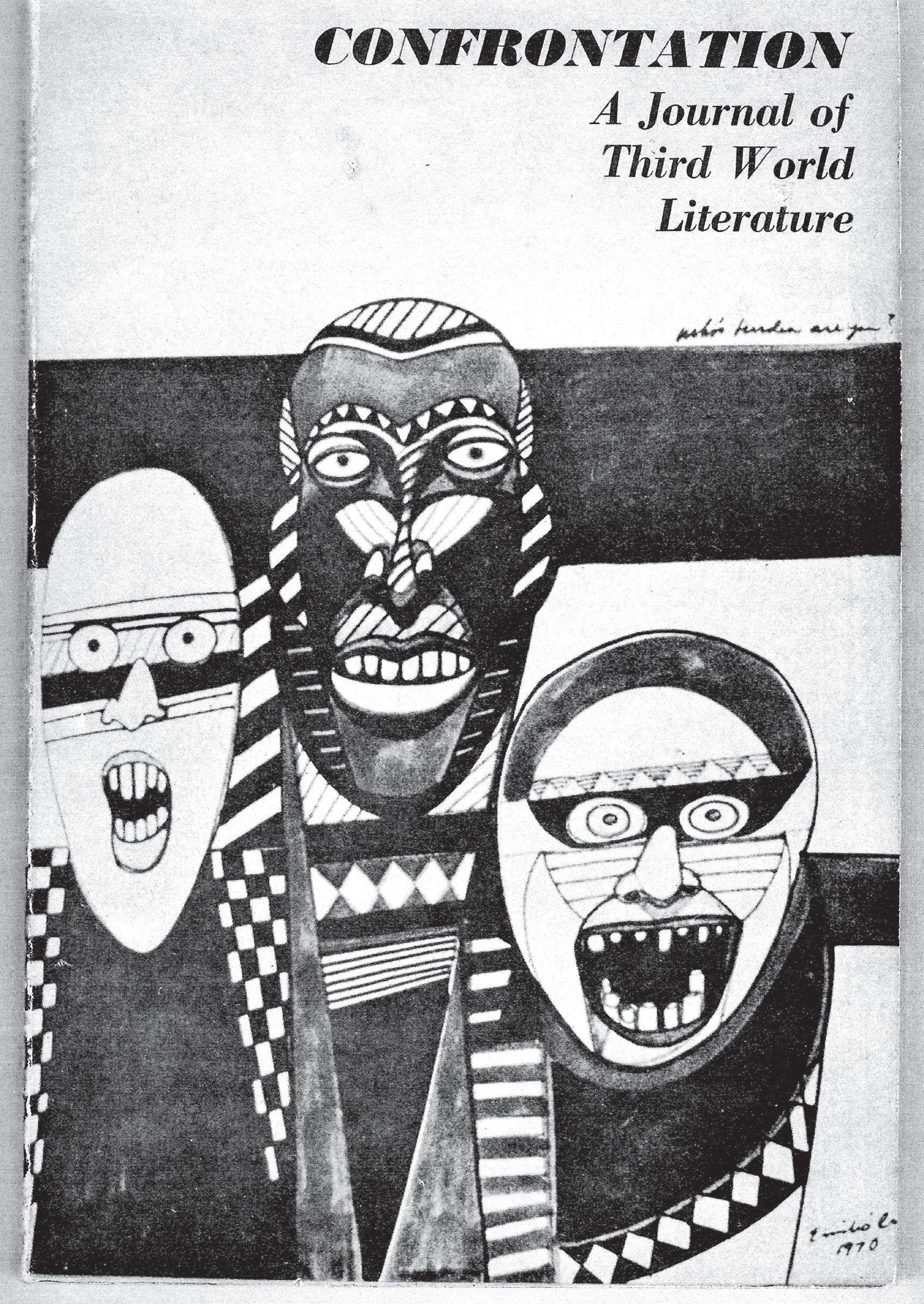
FRI, FEB 11–SAT FEB 12 | 7:30PM | $35/25
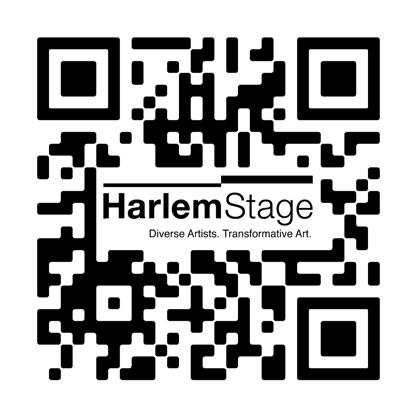
Inspired, imagined, and curated by Harlem Stage Associate Artistic Director/Artist-in-Residence, Carl Hancock Rux, the Black Arts Movement Conference is a threeday event featuring a keynote address by poet, music critic, and arts administrator A.B. Spellman, panels, discussions, essays, and performances, including a closingnight concert co-presented with Park Avenue Armory, curated by guitarist and songwriter Vernon Reid, that reflect, examine, and point to the full experience and culture of the Black Arts Movement.
Employing roundtables, public dialogues, and screenings, the convening will explore controversial
areas of tension between the intellectual, ethical, and commercial imperatives of the Black Arts Movement. In conversations between pioneers of the Black Arts Movement and a contemporary generation of artists and scholars, the Black Arts Movement Conference centers itself within a dialogue that is both historically and culturally relevant in our ever-changing world.
Full lineup & schedule to be announced soon!
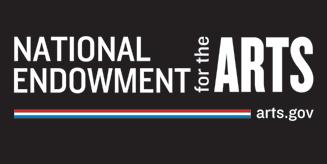



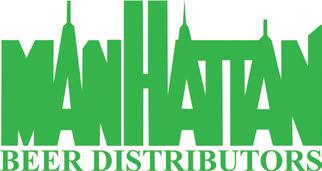
Other significant institutional support provided by the Thompson Family Foundation, Open Society Foundations, and the Leonard & Robert Weintraub Family Fund.

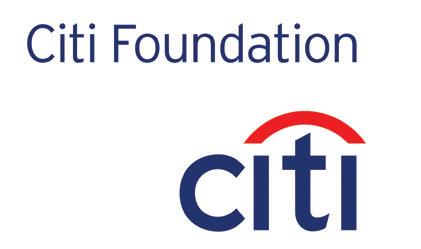



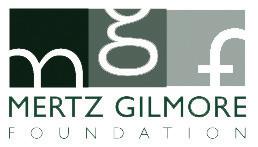



Harlem Stage deeply appreciates the many individuals and institutions that provide their generous support, making our programs possible. We are pleased to recognize the following contributors for their donation of $1,000 or more:
Fan Fox & Leslie R. Samuels Foundation
Leonard and Sophie Davis Estate
Rockefeller Brothers Fund
Manhattan Borough President Mark Levine
Mayor Eric Adams
Department of Cultural Affairs and Commissioner Laurie Cumbo
New York City Council
New York State Council on the Arts
National Endowment for the Arts
Consulate General of Sweden
The Embassy of Sweden
Upper Manhattan Empowerment Zone
Altman Foundation
Louis Armstrong Educational Foundation, Inc.
Association of Performing Arts Professionals
Bloomberg Philanthropies
Capozzalo Heil Giving Fund
Cheswatyr Foundation
Citi Foundation
Columbia Community Service
Joseph and Joan Cullman
Foundation for the Arts
Davis/Dauray Family Fund
Fan Fox & Leslie R. Samuels Foundation
The Ford Foundation
The Howard Gilman Foundation
The Harkness Foundation for Dance
Jerome Foundation
Lambent Foundation/Tides Foundation
The Leonard & Robert Weintraub Family Fund
Lucille Lortel Foundation
Mellon Foundation
Mertz Gilmore Foundation
Metzger-Price Fund
Mid-Atlantic Arts Regional Resilience Fund
Mosaic Network and Fund
New Music USA
Stavros Niarchos Foundation
Open Society Foundations
May and Samuel Rudin Family Foundation
The Scherman Foundation, Inc.
SHS Foundation
The Shubert Foundation, Inc.
The David and Sylvia Teitelbaum Fund, Inc.
The Thompson Family Foundation, Inc.
ABC Signature
BET Networks
Broadway Cares/Equity Fights Aid
JoAnn Chase Company
Consolidated Edison Company
Endeavor
Gluck Plus
Janus Properties
Manhattan Beer Distributors
Paula Cooper Gallery
SESAC, Inc.
TD Bank
UTA—United Talent Agency
Vision Marketing, Inc.
WABC-TV
Warner Bros. Discovery
West Harlem Development Corporation
Vision Marketing
WABC-TV
Rosemarie and Burnside Anderson
Tracy L. Austin
Neal Baer
Catherine Baker-Pitts
Stefany and Simon Bergson
Angela Glover Blackwell* and Fred Blackwell
Esi Bracey
Jamila* and Alvin Bragg
Bill Bragin
Jamie Cannon*
Patty and Bill Cannon
Kathleen and Henry Chalfant
JoAnn K. Chase*
Kinshasha Holman Conwill
Caroline and Paul Cronson
Patricia Cruz*
Hugh Dancy* and Claire Danes*
Wendy Davies
Winfred Dooley
Angelina Fiordellisi and Matt Williams
Neil Gaiman
Trevor Gale
Alex Gansa
Fernando Garcia
Stuart Gelwarg and Karen Lipkind
Myrna and Freddie Gershon
Gail Gregg
Agnes Gund
Michael Haggen
Lisa Hakim
Maya L. Harris and Tony West
Mitchell Harris and Ilham Mezyan
Mari Hashasian
John Josephson and Carolina Zapf
Jenette Kahn* and Al Williams
Michael Kenny
Steven Kirkpatrick
Brad Learmonth and Jon Gilman
Steve Levine
Courtney F. Lee-Mitchell* and Marcus Mitchell
Glenn Ligon
Carey Lovelace
Allison and Howard Lutnick
Marcia and Maurice Lyons
Mickey Lyons
Marilu Marshall
Edward McBrien
Sherman and Chris Meloni
Jonas Norr
Martin Noxon
Ryan Scott Oliver
Daniel Oliverio
Daniel J. Osheyack
Estelle Parsons and Peter Zimroth
Marguerite Pitts
Maxine and John Potts
Sharon and Bob Prince
Rebecca Robertson*
Judith Rubin
LaChanze Sapp-Gooding*
Edward W. Snowdon Jr.
L. Josh Schmell
Robyn L. Stein
David Stone
Elizabeth Streb and Laura Flanders
Jordan Thaler
Mark Thomas*
Jennifer and Derek Trulson
Tamara Tunie*
Reginald Van Lee and Corey L. McCathern
Fran and Barry Weissler
Katy and Greg Williamson
Carol Wood Moore
Michael A. Young*
As of September 1, 2022, the list is in formation. Donations under $1,000 are greatly appreciated, but not acknowledged publicly.
If your name has been omitted or misprinted, please accept our apologies and contact Associate Director of Development, Shante Skyers at sskyers@harlemstage.org
Courtney F. Lee-Mitchell, President
Jamie Cannon, Vice President
Michael Young, Secretary
Mark Thomas, Treasurer
Angela Glover Blackwell
Jenna Bond
Jamila Ponton Bragg
Patricia Cruz, Artistic Director & CEO
Eric Oberstein, Managing Director
Shamar Hill, Director of Development
Shanté Skyers, Associate Director of Development
Carl Hancock Rux, Associate Artistic Director/Curator-in-Residence
Yunie Mojica, Programming Manager
Deirdre May, Senior Director of Digital Content and Marketing
Andre Padayhag, Marketing Manager and Graphic Designer
Eddy Perez, Box Office Manager
Amanda K. Ringger, Director of Production
Rodney Bissessar, Director of Operations
Lamont Askins, Operations Associate
Acey Anderson Sr., Maintenance
JoAnn K. Chase
Patricia Cruz
Hugh Dancy and Claire Danes
Jenette Kahn
Rebecca Robertson
LaChanze Sapp-Gooding
Tamara Tunie
NCheng LLC, Accountants/Advisors
Michelle Blankenship, Principal Aaron Lam, Supervising Senior Accountant
Aon/Albert G. Ruben Company (NY)
—Claudia Kaufman, Insurance
DAS Services, IT Consultant
Digital Video Services—BriGuel
Lutz & Carr/Chris Bellando, Accountants
Madison Consulting Group,
—Matt Laurence
Manchester Benefits—Greg Martin
Marc Millman Photography
Digital Video Services
—Jess Medenbach
RL Stein Group—Robyn L. Stein
Snugg Studios—Derrick Saint Pierre
Development Consultant
The Whelan Group Incorporated
—Charles Whelan
Blake Zidell & Associates, Public Relations & Marketing
